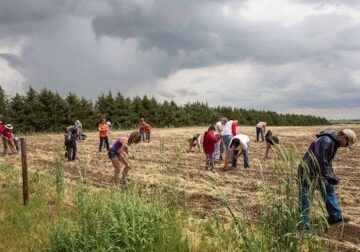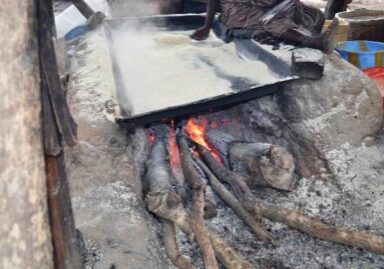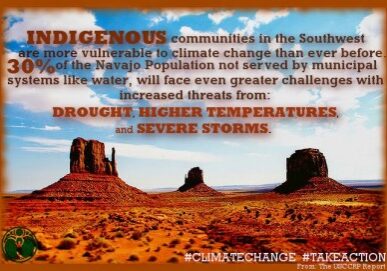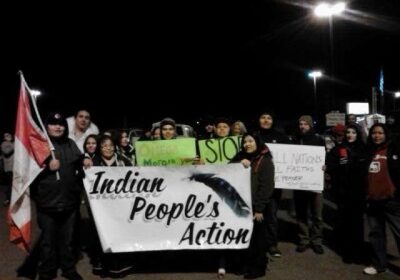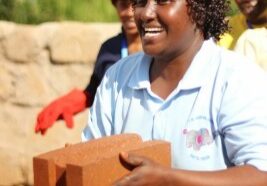- All
- Updates
- WEA Voices
- In the News
Sacred Red Corn Planting Takes a Stand Against KXL
The Ponca Trail of Tears and the proposed route of the Keystone XL pipeline are expected to intersect on the land of Mekasi Horinek in South Dakota, of the Lakota nation. Horinek has led an effort to bring back sacred and native plants and, in the process, combat poor health in tribal communities, and take…
WEA is partnering with Pink51 – Shop with Purpose!
WEA is thrilled to announce our exciting new partnership with Pink51.com as one of their featured organizations! What does this mean? Well, now there’s a new way for your to support our work and vision to uplift grassroots women environmental leaders…all while getting your shopping done! What Pink51 is: Pink51 is a for profit shopping…
How Poverty hurts the Environment
Despite the fact that Nigeria is a leading producer of Liquefied Petroleum Gas (LPG) and is seventh in the world for largest reserves of natural gas, it is also one of the biggest users of wood and charcoal fuels for cooking purposes. Given that wood is essentially free and that kerosene and other fuels are expensive and often…
[Did You Know?] Climate Change Impacts on Navajo Nation
In it’s recent report, Climate Change Impacts in the United States, the U.S. Global Change Research Program found that “Indigenous communities in the Southwest are more vulnerable to climate change than ever before. 30% of the Navajo population not served by municipal systems like water will face even greater challenges with increased threats from: drought,…
#Proud2BIndigenous Week
Did you know this week was First Peoples Worldwide’s Proud To Be Indigenous week? WEA’s Advocacy Network Coordinator, Kahea Pacheco, shares why she’s so proud to be Indigenous: “Because it grounds me in my history, my legacy, and my responsibility. Hawaiians are a strong and resilient people that took care of community and land, and…
Reject and Protect: Cowboy Indian Alliance Takes a Stand Against the KXL
By: Sophia Sparksworthy, WEA Intern “The [Cowboy Indian Alliance] asks President Obama a simple question: Is an export pipeline for dirty tar sands worth risking our sacred land and water for the next seven generations?” — Reject and Protect, Call to Action In an effort to tap into domestic oil supplies between the United States…
The Threat to Sacred Waters and Ways of Life for California Indigenous Communities
By: Sophie Sparksworthy, WEA Intern “Indigenous peoples have the right to the conservation and protection of the environment and the productive capacity of their lands or territories and resources.” — Article 29, UN Declaration on the Rights of Indigenous Peoples The physical health and cultural well-being of Indigenous communities are threatened by increasing environmental…
The Ripple Effect Is Real
by Gemma Bulos Question: When would the equation 20 x 222 = 4588? Answer: When you train 20 women how to build rainwater harvesting systems. They train 222 of their colleagues (84% of which were women). And together they build 31 tanks supplying water to 4588 people in Tanzania, Kenya and Uganda. Help us amplify…
From our Allies: Indian People’s Action and the Tar Sands Megaloads
“[Tar sands oil] is not a future issue, it’s causing the land to be inhospitable, both on the reservations and for the surrounding area… There’s no way we’re going to change the surrounding area once it’s destroyed.” — Naomi Oderman, Media Liaison with Indian People’s Action (source) There are many equally important facets of the Keystone…
GWWI Partners with KIVA
By Bess Zewdie, Research Intern Global Women’s Water Initiative is thrilled to announce our new partnership with Kiva, the worlds largest – and highly successful – online micro-lending platform. Kiva allows contributors to fund loans in low socio-economic communities, where access to conventional means of financial support is not available. This is done through their…

